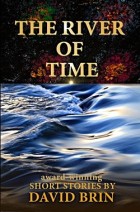I often hold up California as the dynamic leader in U.S. governance… e.g having the best election laws in the country, that have reduced radical partisanship, encouraging pragmatism and negotiation and yes, with the minority of moderate Republicans. It helps that Gov. Jerry Brown – while liberal and dynamic and busy, is also skeptical of meddlesome over-reach for its own sake. He vetoes fairly often.
All told, California is an utter refutation of the Foxite song that “divided government that does nothing is best.” Idiots. And yet… here’s a bill that Jerry shoulda trashed.
 California’s new Assembly Bill 1570, ‘Sale of Autographed Memorabilia‘ law requires a Certificate of Authenticity (COA) for any signed item worth more than $5. Failure to issue the COA could make the seller liable for ten times the value in damages.
California’s new Assembly Bill 1570, ‘Sale of Autographed Memorabilia‘ law requires a Certificate of Authenticity (COA) for any signed item worth more than $5. Failure to issue the COA could make the seller liable for ten times the value in damages.
Besides brick and mortar stores, note that this bill applies also to “any dealer engaged in mail-order, telephone-order, or online business for the sale of collectibles in or from this state.”
Though I imagine that this bill was targeted primarily at sports memorabilia and movie schlock, where forgery is a real problem and ‘autograph mills’ pump out massive numbers of celebrity collectibles, it will be particularly hard on small booksellers and comic book sellers.
Specifically, California booksellers worry that it will make it more difficult to hold author signings or sell author-signed collectible books. In addition, bookstores may already be in possession of inventories of hundreds or thousands of autographed books.
Note that the seller can not just toss in a standard boilerplate form. Consider the rather onerous bookkeeping details required by this bill, set to go into effect January 1, 2017:
The Certificate of Authority must, “in at least 10-point boldface type” (1) Describe the collectible and specify the name of the personality who autographed it. (2) Either specify the purchase price and date of sale or be accompanied by a separate invoice setting forth that information. (3) Contain an express warranty, which shall be conclusively presumed to be part of the bargain, of the authenticity of the collectible… (4) Specify whether the collectible is offered as one of a limited edition… (5) Indicate whether the dealer is surety bonded… (6) Indicate the last four digits of the dealer’s resale certificate number… (7) Indicate whether the item was autographed in the presence of the dealer and specify the date and location of, and the name of a witness to, the autograph signing. (8) Indicate whether the item was obtained or purchased from a third party. If so, indicate the name and address of this third party. (9) Include an identifying serial number that corresponds to an identifying number printed on the collectible item, if any….
 Furthermore, “the dealer shall retain a copy of the certificate of authenticity for not less than seven years.” That’s a lot of paperwork, particularly for small independent booksellers.
Furthermore, “the dealer shall retain a copy of the certificate of authenticity for not less than seven years.” That’s a lot of paperwork, particularly for small independent booksellers.
As an author, I often sign all the remaining inventory at a bookstore after personalizing books for fans. I now need a witness to my signing?
This bill also affects the individual consumer, who may wish to resell an item they purchased earlier. How many people will have obtained, or held on to the appropriate paperwork?
The law is dumb and troglodytic. The first obvious change is to increase the minimum value. It’s an absurd amount of bookkeeping for items valued at just over $5. And books should be excluded. At a time when small bookstores are already struggling, let’s not act in any way to discourage reading and literacy and love of books.
If provenance is a problem, a piece of paper won’t solve it. Most are not worth the paper they’re printed on. Of course, certificates can be forged as easily as collectibles. If you must verify, take a picture each time you sign an item and file the jpeg using a correlation app that will find that specific item by the shape of the signature – different each time! Much easier to do and to comply with the law and it can actually work! Correlating and verifying. Best of all it is not a stone-age 20th century “solution.”
When passing a new bill, one must always consider: Who’s going to enforce this bill… and at what cost?
== Politics of the situation ==
Fortunately, this is California. The law will be amended next year. Then amended again till the public and stakeholders care too little to make much noise. It is called real, functioning democracy. If you object to aspects of this law, contact your state legislator.
What this kind of bill demonstrates is that the Democratic-Republican divide is not left-vs-right… Democrats often de-regulate much more than GOPpers do. No, it is manic-vs-depressive. The Democratic-run California legislature rushes about in a frenzy, adapting the state’s laws to 21st Century conditions (it’s their job!), then modifying the modifications under comment/complaint from citizens and companies… then getting more feedback in public hearings and modifying again… Busy, busy, busy. And sometimes drawing vetoes from the liberal-but-pragmatic chief executive. But for the most part, it’s good or neutral stuff.)
Sure, manic is vexing, sometimes, like this silly autograph bill. But we move forward. Unlike the U.S. Congress, which has become utterly dysfunctional, unable to pass even a basic budget. Unable to hold hearings about pressing matters or even issue subpoenas… except In pathetically partisan-nonsensical witch hunts. The laziest Congresses in U.S. history. Except for trillions of gushing tax gifts to the rich, and awful wars, can you name any accomplishments?













